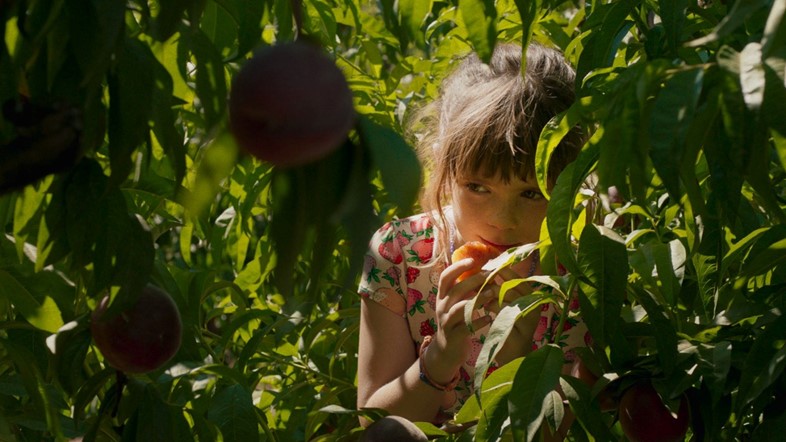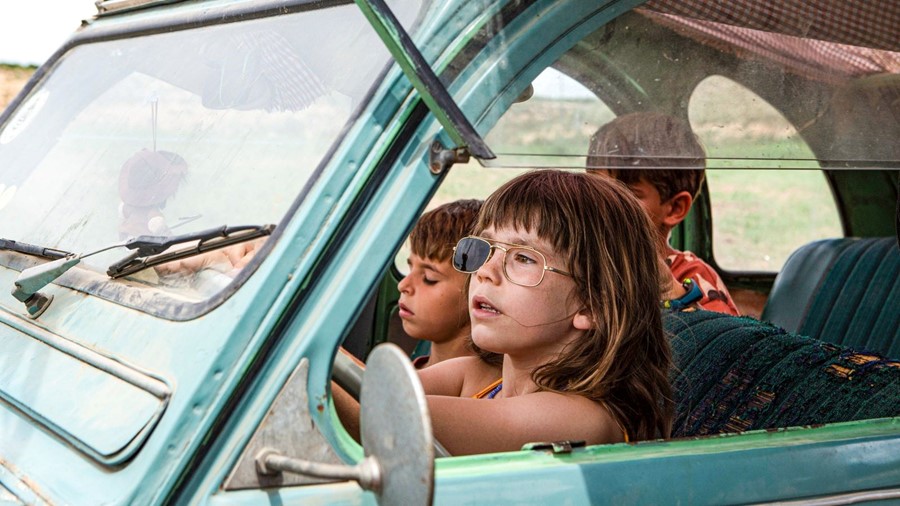Carla Simón’s new film Alcarràs draws subtle parallels between Spain’s feudal landowning past and the brute realities of its capitalist present, but offers no easy answers to their plight
A winner at last year’s Berlin Film Festival, Carla Simón’s second feature Alcarràs has been branded a masterpiece by the grand dame of Spanish cinema, Pedro Almodóvar, but it has little to do with the latter’s sainted blend of melodrama and kitsch. Instead, Simón’s film looks to the Italian neorealists and myths of the American west – notably The Grapes of Wrath – for its tale of a farming family under threat of losing their land, which works quiet wonders with potentially unsexy material and has proved a surprise box-office hit in its home country.
In rural Catalonia, peach farmer Quimet Solé (Jordi Pujol Dolcet) has devoted his life – and much of his physical health – to working the land inherited from his grandfather, who bought the plot on a verbal agreement from the local landowner, Puyol, whose family he helped to hide during the civil war. Now, Puyol’s grandson is taking advantage of this non-legally binding arrangement to swindle the Solés out of their land, which he intends to use to create a solar energy farm. As the future bears down upon them, the family are presented with a choice, one that will serve to deepen cracks within the group. But the Solés are not unique in their suffering, and Simón takes pains to portray the penurious lot of the migrant workers who pick fruit on the farms, as well as the smallholders whose livings are undercut by industrial farmers’ ability to grow in bulk and sell cheap.

But if the film is in one sense a tragedy, it’s also one brimming with the joys of a bucolic upbringing, Simón unfurling her story largely through the eyes of the family’s kids. There are scenes of pure vibrant mischief, like the one where the family chuck each other in the swimming pool, the existentially put-upon Quimet finally cracking a smile, and others which achieve a quiet lyricism that ripple with longing for the past, like the one where the Soles’ ageing patriarch, Rogelio, sings old harvesting songs to his grandkids, their words a subtle repudiation of the greed inherent in modern life. These moments are lent poignancy by the fact that we know these people are living on borrowed time, and Simón, drawing subtle parallels between Spain’s feudal landowning past and the brute realities of its capitalist present, offers no easy answers to their plight. But even amid this wreckage, her film is always alert to the possibilities of wonder.
Alcarràs is in UK cinemas now, and streams on MUBI from February 24.
